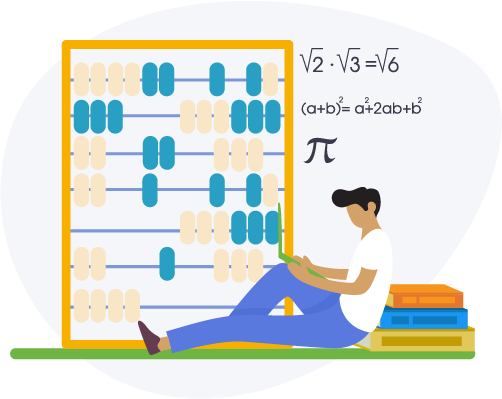Summer Programs
Math Recovery (Grades 4-12)
In October 2022, Ontario released the provincial results of the EQAO results. Fewer than 50% of Grade 6 students met the provincial standard in math. It was the first time since the start of the pandemic that the tests were administered. The data also highlighted that the most recent provincial results are the same as student scores in 2018. In 2021, slightly more than half of Ontario students in Grade 9 math met the provincial testing standard. This decline is also reflected on international student assessments where Canadian high school students’ scores in mathematics have been falling over time.
Many students find math difficult and struggle with learning it for different reasons.
Some may lack confidence, have trouble focusing or staying on task, or have a negative attitude toward math. Others may have difficulty processing information as quickly as their classmates or have trouble with things like remembering information. Challenges with processing speed, phonological awareness, working memory, executive functions, and attention can have a cascading effect on math learning. When students don’t get enough practice with math concepts and skills, it can also make it harder for them to learn. Research has shown that if students don’t understand basic math concepts taught in elementary school, they may have trouble with math in high school.
At Evoke, our math programs help students who are behind in math by giving them extra time to learn and addressing their learning challenges. This helps bridge the gap and ensures that they don’t fall further behind.
Academic Recovery, Grades 3–12
Math is cumulative. For example, if a student has not mastered fractions, they’re going to have a hard time in high school when they begin to learn algebra, which is grounded in fractions. Higher-level math frequently requires fundamental knowledge about underlying concepts that is necessary for success in sequential courses. The math trajectory includes some grades that are more critical than others. For example, in the years leading up to eighth grade, students transition from arithmetic into algebra. Studies demonstrate that when students have fallen behind, the most successful approaches to closing learning gaps and improving math proficiency require explicit instruction and intense and targeted intervention to help students master the skills and knowledge required for success in the next grade.
Geared toward students who have been falling behind in math and those with gaps in their learning, Evoke’s math recovery program focuses on identifying and addressing academic gaps in math for students in Grades 3–12, concentrating on the most important concepts required for the next academic year.

The program begins with a diagnostic assessment that allows us to pinpoint the specific concepts and curriculum expectations with which a student is struggling and help them get up to speed so they can experience success in the next academic year. The information collected from the math diagnostic is helpful in guiding our tutors so that they may effectively and efficiently develop a student’s skills and build fluency.
Evoke’s Academic Recovery program gives students the extra time to relearn critical skills and concepts and target specific learning deficits, accelerating proficiency regardless of where the student began. The program reinforces understanding over memorization.
Recent studies highlight the effectiveness of tutoring as an evidence-based intervention for learning loss when delivered in high doses with three or more sessions per week. Studies have found little evidence that once-a-week tutoring is sufficient to generate meaningful gains.
Evoke’s recovery math sessions are 45 minutes in length and require a minimum commitment of 15 hours over the course of the summer. Students are required to complete 15 minutes of practice questions in between sessions to reinforce strategies and skills.
Minimum Expected
Summer Commitment
15Coaching
Hours
